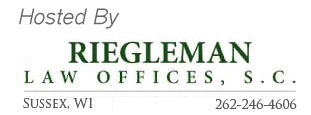Chiropractors are increasingly receiving requests that patients’ protected health information (“PHI”) be transferred electronically, rather than in paper format. Here are some insights on how to address these types of electronic requests for records under “HITECH” and a review of various legal aspects of this type of request.
- What is the basis for this type of request? The provisions of the federal law, “HITECH”, or Health Information Technology for Economic and Clinical Health, allows for these types of request. These types of requests are commonly being sent to doctors by attorneys representing patients and insurance companies adjusting claims.
- Why is this format being requested? Patient records can be both maintained and transferred much more quickly and efficiently in electronic format as compared to the old paper format. Also important is that HITECH provisions allow the requester to pay much less to the provider for transmission in this format.
- When must a response to the request be provided? Under the federal law, the provider has 30 calendar days from the date of the request in which to respond. The provider can generally request up to an additional 30 days in which to respond if there is a rational reason to request the extension. Reasons could include the time needed to locate records kept off site or accessing records which are not readily accessible. In order to extend the time, the doctor must; within the initial 30 day period, make a written request for the extension which includes an explanation of the reason for the delay and expected date at which the records will be provided.
- How can charges be made for complying with the request? A doctor can only charge a “reasonable, cost based fee” which includes the cost of: (1 )labor for copying the PHI, (2) supplies for creating the electronic media (i.e. CD or USB drive), (3) postage if the PHI is mailed, and (4) time associated with the preparation of an explanation or summary of the PHI, if sought by the requesting party. Keep in mind that labor charges are limited to that time associated with scanning paper PHI into electronic format, transferring paper copies to an electronic system, converting PHI kept in one electronic format to another format requested by a party, and creating and executing a mailing or e-mail with the responsive PHI. Importantly, if labor charges will be billed, the doctor must provide a breakdown of the actual costs in advance of producing the PHI.
- Where do problems or issues develop? Initially, providers must produce the PHI in electronic format even if it is commonly maintained only in paper format. Every covered entity is expected to have the capability to scan paper PHI into the requested format. Second, doctors must realize that they can no longer utilize a per page approach for billing which is permitted under the state statute only in those situations where a party requests a paper copy of PHI. Importantly, doctors can still charge for the production of a” certification page” which is often requested with the electronic PHI. It is commonly asserted that a charge of up to $40 for preparing, reviewing and providing such a certification page is reasonable. Finally, the doctor is reminded to provide advance notice of such anticipated labor charges.
- Help or Resources … The attorneys at this site can provide assistance with this matter. In addition, written resources can be found at http://www.hhs.gov. Finally, this federal law is administered by the Office of Civil Rights with its Midwest office located in Chicago.

 COMMUNITY.
COMMUNITY.